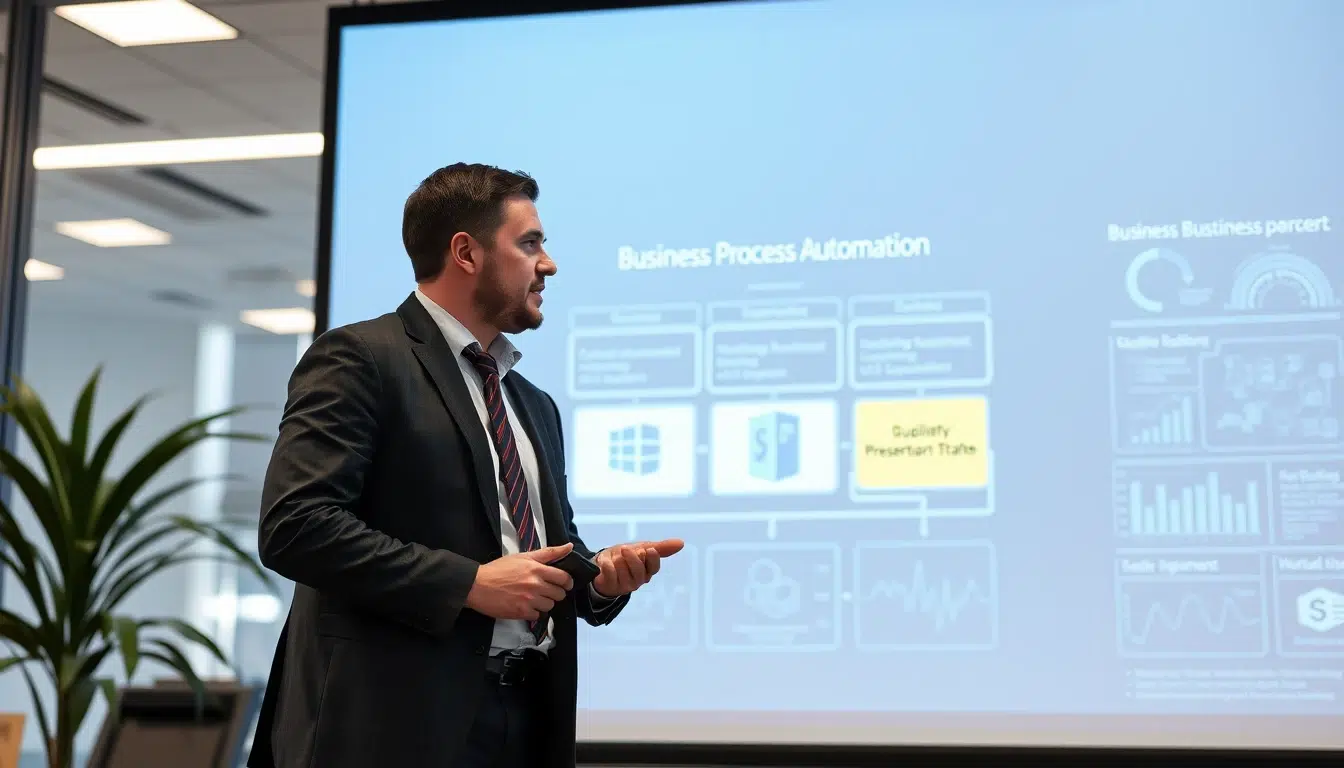Business Analysis and Project Management Certification

| Date | Format | Duration | Fees (USD) | Register |
|---|---|---|---|---|
| 12 Jan - 16 Jan, 2026 | Live Online | 5 Days | $3350 | Register → |
| 02 Feb - 06 Feb, 2026 | Live Online | 5 Days | $3350 | Register → |
| 16 Mar - 20 Mar, 2026 | Live Online | 5 Days | $3350 | Register → |
| 01 Jun - 05 Jun, 2026 | Live Online | 5 Days | $3350 | Register → |
| 06 Jul - 08 Jul, 2026 | Live Online | 3 Days | $2290 | Register → |
| 14 Oct - 16 Oct, 2026 | Live Online | 3 Days | $2290 | Register → |
| 16 Nov - 20 Nov, 2026 | Live Online | 5 Days | $3350 | Register → |
| 02 Dec - 04 Dec, 2026 | Live Online | 3 Days | $2290 | Register → |
| Date | Venue | Duration | Fees (USD) | Register |
|---|---|---|---|---|
| 05 Jan - 09 Jan, 2026 | London | 5 Days | $5905 | Register → |
| 16 Feb - 27 Feb, 2026 | Miami | 10 Days | $12945 | Register → |
| 04 Mar - 06 Mar, 2026 | London | 3 Days | $4945 | Register → |
| 13 Jul - 17 Jul, 2026 | Dubai | 5 Days | $5475 | Register → |
| 24 Aug - 28 Aug, 2026 | Kigali | 5 Days | $5475 | Register → |
| 28 Sep - 02 Oct, 2026 | London | 5 Days | $5905 | Register → |
| 05 Oct - 23 Oct, 2026 | Cape Town | 15 Days | $13500 | Register → |
| 09 Nov - 13 Nov, 2026 | Doha | 5 Days | $5475 | Register → |
| 14 Dec - 01 Jan, 2027 | Barcelona | 15 Days | $14200 | Register → |
Did you know that business analysts spend 73% of their time performing various business analysis activities on projects and programmes, which increases to 83% in highly mature organisations?
Course Overview
The Business Analysis and Project Management Certification by Alpha Learning Centre is meticulously designed to equip professionals with essential skills in integrating business analysis with project management to enhance project success rates. This course focuses on how these complementary disciplines work together to drive successful project outcomes, with business analysts providing critical business insights while project management focuses on the creation of project deliverables.
Why Select This Training Course?
Selecting this Business Analysis and Project Management Course offers numerous advantages for professionals involved in project delivery and business improvement. Participants will gain advanced knowledge of business process analysis, project lifecycle management, and stakeholder engagement techniques. The course provides hands-on experience with industry-standard business intelligence tools and real-world case studies, enabling attendees to optimise their project management strategies effectively.
For organisations, investing in this training enhances overall project success rates and ensures better strategic alignment. Research shows that organisations implementing comprehensive business analysis and project management frameworks can achieve enhanced strategic alignment between projects and business objectives and better requirements definition and scope management.
For individuals who complete this course will benefit from enhanced career prospects as they become more valuable assets in their respective fields. Studies indicate that professionals with integrated business analysis and project management expertise can significantly improve their ability to facilitate communication between project stakeholders and identify, assess, and manage project risks effectively.
Transform your business analysis and project management capabilities – Register now for this critical advanced training programme!
Who is this Training Course for?
This course targets the following persons: project management and business analysis professionals, operations professionals, and others who want to gain advanced skills in effectively managing and analysing business projects.
What are the Training Goals?
Upon completion of this training course, participants shall be able to:
- Create advanced competencies in business analysis and project management
- Apply suitable models, methods and tools associated with these professions
- Enhance decision-making and problem-solving abilities
- Enhance the communication and engagement with stakeholders
- Improve the rate of project success and efficiency in organisations.
How will this Training Course be Presented?
The Business Analysis and Project Management Certification Course delivers comprehensive, hands-on training through proven methodologies designed to maximise learning outcomes and practical skill development. Our expert instructors employ the following methods:
- Interactive workshops on requirements elicitation and project scope definition
- Real-life case studies demonstrating successful business process optimisation
- Simulation exercises for risk assessment in projects
- Group discussions on change management and impact analysis
- Practical application of Agile methodologies and Scrum framework
Each delivery method is carefully integrated to ensure participants gain both theoretical knowledge and practical experience. The course structure promotes active engagement and real-world application, allowing participants to develop crucial analytical and strategic skills within a supportive learning environment.
Join us to experience this dynamic and effective learning approach – Register now to secure your place!
Course Syllabus
Module 1: Strategic Business Analysis
- Aligning business analysis with corporate strategy.
- Advanced stakeholder analysis techniques.
- Predictive analysis for business needs.
- Scenario planning for business decisions.
- Risk analysis in business contexts.
- Value stream mapping for process improvement.
- Benchmarking for competitive analysis.
- Business model innovation.
- Strategic use of data analytics.
- Forecasting market trends.
- Identifying intangible benefits.
- Decision-making models in uncertainty.
Module 2: Requirements Engineering
- Eliciting complex requirements.
- Advanced techniques for requirements validation.
- Managing requirements traceability.
- Prototyping for complex systems.
- User story mapping for product development.
- Non-functional requirements mastery.
- Conflict resolution in requirements.
- Requirements prioritisation methods.
- Change management in requirements.
- Agile vs. traditional requirements techniques.
Module 3: Project Execution and Control
- Agile methodologies in project management.
- Critical chain project management.
- Resource optimisation techniques.
- Advanced risk management frameworks.
- Quality assurance in project deliverables.
- Performance metrics beyond the triple constraint.
- Stakeholder engagement strategies.
- Adaptive project planning.
- Conflict resolution in project teams.
- Change control in dynamic environments.
- Earned value management for project control.
Module 4: Solution Evaluation and Transition
- Post-implementation benefits realisation.
- Metrics for solution effectiveness.
- Transition planning for solution deployment.
- Change management for solution adoption.
- ROI analysis post-project.
- User acceptance testing strategies.
- Feedback loops for continuous improvement.
- Techniques for managing solution resistance.
- Measuring indirect impacts of solutions.
- Longitudinal impact studies.
- Business process re-engineering post-solution.
- Lessons learned for future projects.
Module 5: Leadership in BA and PM
- Leading cross-functional teams.
- Influence and negotiation in project settings.
- Cultivating a culture of innovation.
- Emotional intelligence for team dynamics.
- Leadership in crisis management.
- Coaching and mentoring in business analysis.
- Strategic vision in project management.
- Ethical leadership in project decisions.
- Managing virtual and distributed teams.
- Leadership in agile transformations.
Module 6: Data-Driven Decision Making
- Advanced data analytics for decision support.
- Predictive models for project outcomes.
- Data governance for business analysis.
- Machine learning applications in PM.
- Visual analytics for stakeholder communication.
- Decision trees for complex scenarios.
- Big data in requirements gathering.
- Real-time data for agile adjustments.
- Data storytelling for project insights.
Module 7: Integration of BA and PM
- Synergising BA and PM practices.
- Overlapping roles and responsibilities.
- Integrated lifecycle management.
- Portfolio management for BA initiatives.
- Conflict resolution between BA and PM.
- Benefits tracking in project management.
- Customising methodologies for BA-PM.
- Change management across the BA-PM lifecycle.
- Strategic alignment of BA and PM objectives.
Module 8: Advanced Tools and Techniques
- AI in business analysis tools.
- Simulation for project risk assessment.
- Blockchain for traceability in projects.
- IoT for project monitoring.
- Cybersecurity considerations in projects.
- Automation in project management processes.
- Lean Six Sigma for BA and PM.
- VR/AR for stakeholder engagement.
Module 9: Global and Cultural Considerations
- Managing projects in diverse cultural settings.
- International compliance in project management.
- Cross-cultural communication skills.
- Global sourcing and outsourcing strategies.
- Cultural intelligence in BA practices.
- Ethical considerations in global projects.
- Language barriers and project management.
- Adapting BA tools for different regions.
- Global team coordination techniques.
Module 10: Future Trends in BA and PM
- AI and automation’s impact on BA and PM.
- Agile scaling frameworks.
- The role of blockchain in project management.
- Sustainable practices in BA and PM.
- The gig economy and project teams.
- Quantum computing in business analysis.
- Predictive project analytics.
- Digital transformation of BA and PM roles.
Module 11: Regulatory and Compliance Management
- Navigating complex regulatory environments.
- Compliance risk assessment in projects.
- Data privacy laws and project management.
- Intellectual property management in BA.
- Ethical considerations in project execution.
- Industry-specific compliance frameworks.
- Compliance audits in project lifecycle.
- Regulatory agility in project management.
- Building compliance into project processes.
- Global regulatory harmonisation strategies.
Training Impact
The impact of business analysis and project management training is evident through various real-world case studies and data, which demonstrate the effectiveness of structured programmes in enhancing project success rates and strategic alignment.
Research indicates that professionals with combined business analysis and project management expertise can define project scope more effectively by identifying business requirements, goals, and objectives, develop more comprehensive project plans that address project risks, constraints, and dependencies, and facilitate better communication between project stakeholders.
These case studies highlight the tangible benefits of implementing advanced business analysis and project management techniques:
- Improved project scope definition through requirements elicitation
- Enhanced risk assessment in projects
- Increased accuracy in feasibility analysis
- Strengthened stakeholder engagement
By investing in this advanced training, organisations can expect to see:
- Significant improvement in project success rates
- Improved ability to handle complex business process optimisation
- Enhanced decision-making capabilities through data-driven approaches
- Increased competitiveness through strategic planning in projects
Transform your career and organisational performance – Enrol now to master Business Analysis and Project Management!
FAQs
4 simple ways to register with Alpha Learning Centre (ALC):
Website:
Log on to our website www.alphalearningcentre.com. Select the course you want from the list of categories or filter through the calendar options. Click the “Register” button in the filtered results or the “Manual Registration” option on the course page. Complete the form and click submit. Telephone:
Call +971 58 102 8628 or +44 7443 559 344 to register. E-mail Us:
Send your details to [email protected]. Mobile/WhatsApp:
You can call or message us on WhatsApp at +971 58 102 8628. Believe us; we are quick to respond to.
Yes, besides English, we do deliver courses in 17 different languages which includes Arabic, French, Portuguese, Spanish—to name a few.
Our course consultants on most subjects can cover about 3 to maximum 4 modules in a classroom training format. In a live online training format, we can only cover 2 to maximum 3 modules in a day.
Our public courses generally start around 9:30am and end by 4:30pm. There are 7 contact hours per day.
Our live online courses start around 9:30am and finish by 12:30pm. There are 3 contact hours per day. The course coordinator will confirm the Timezone during course confirmation.
A valid ALC ‘Certificate of Training’ will be awarded to each participant upon successfully completing the course. Accredited certificates from HRCI, PMI, CPD, IIBA are also available upon request and additional fees.








